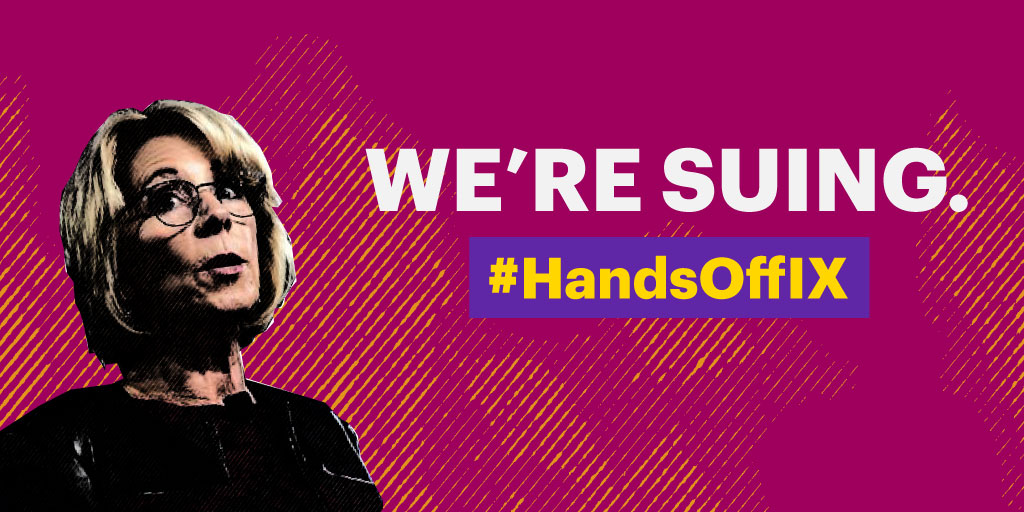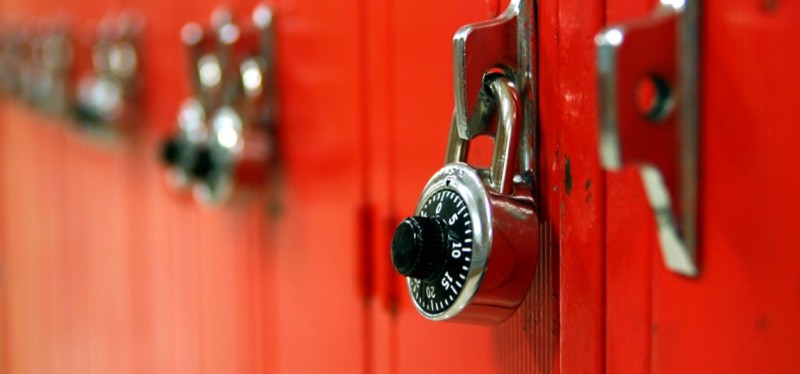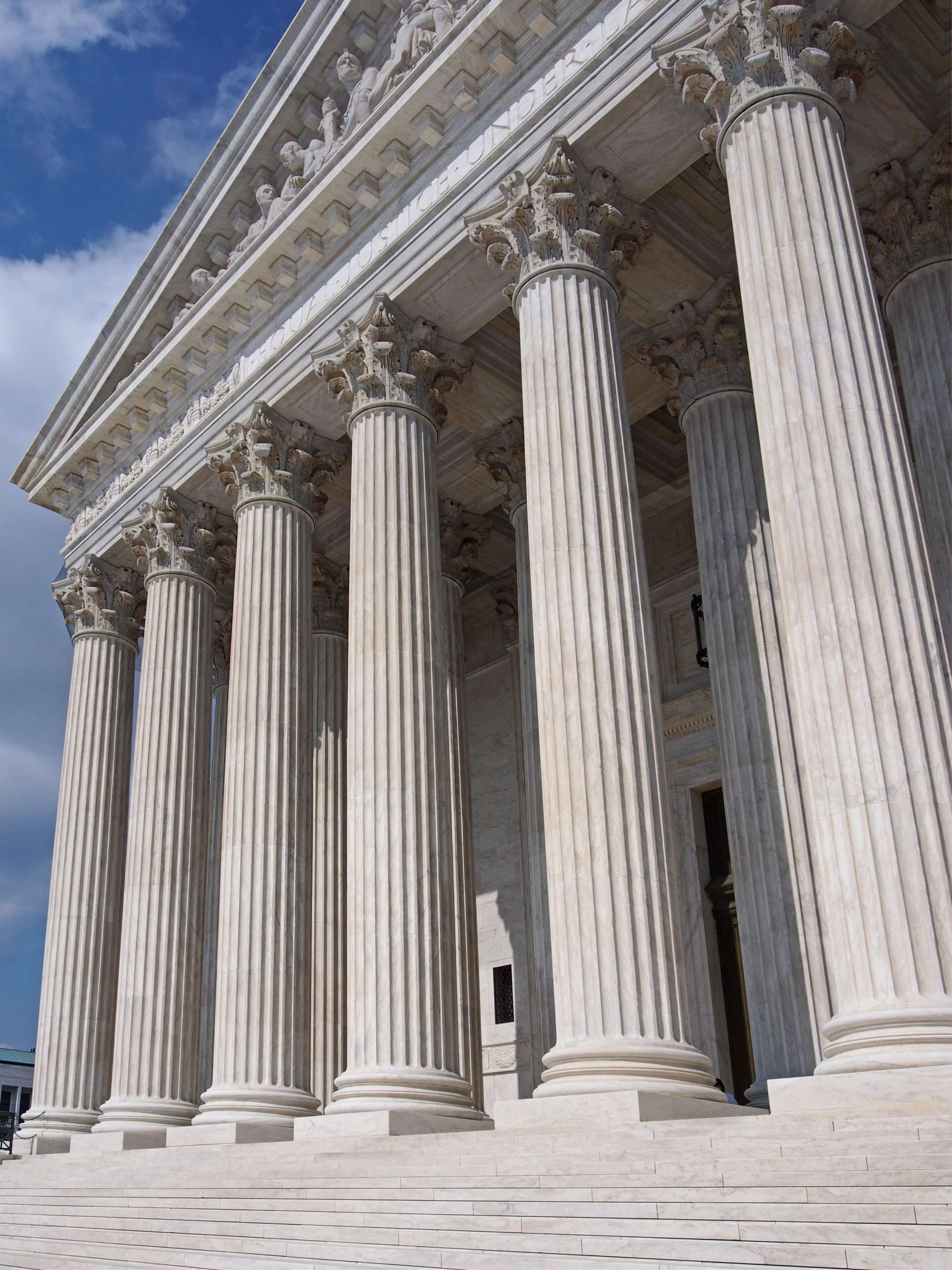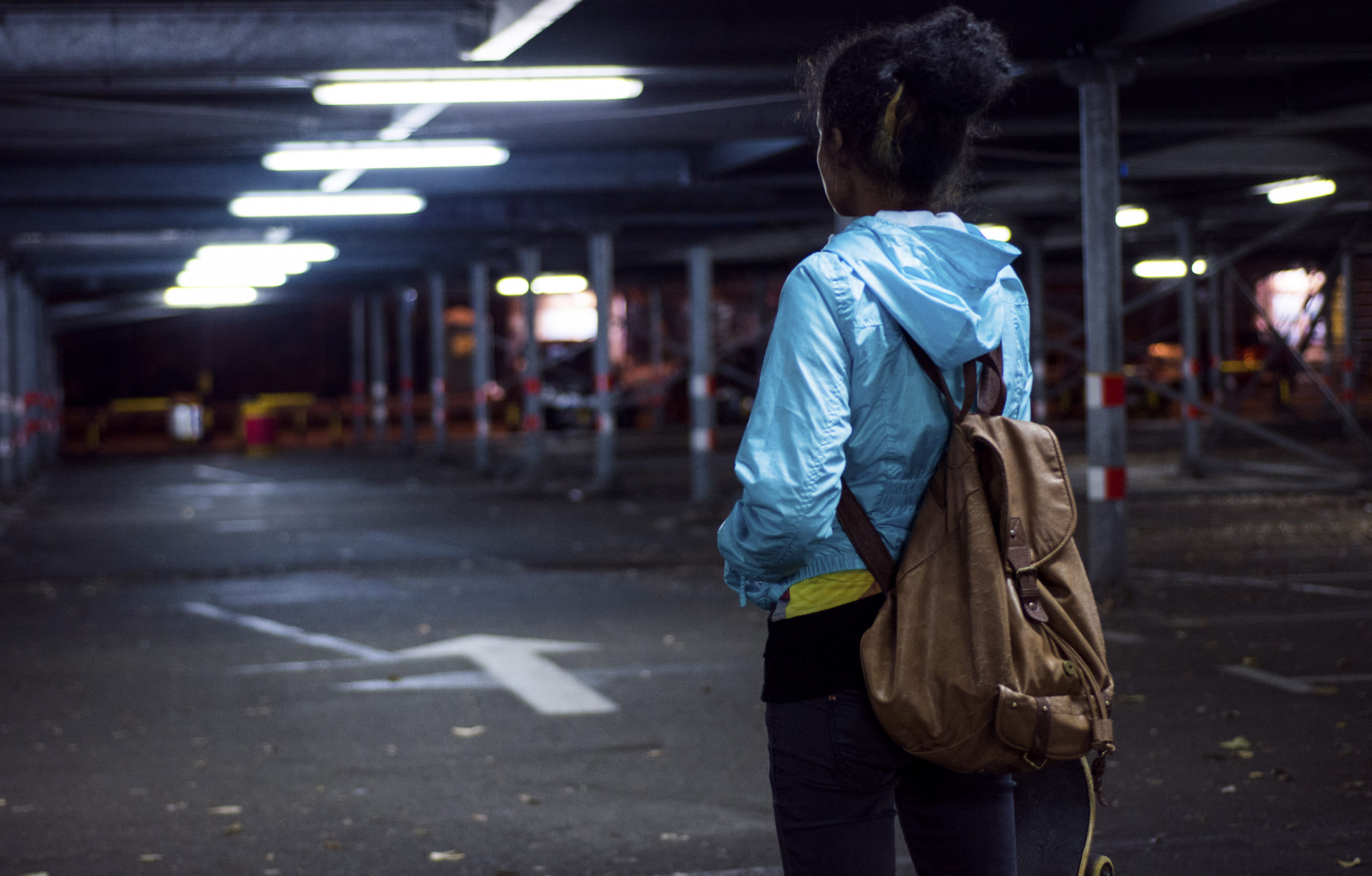The New Title IX Rule Is Dangerous for All Students. That’s Why We’re Suing Betsy DeVos (Again).

It’s here. Betsy DeVos has released—in the middle of a global pandemic—a new Title IX rule that weakens protections against sexual harassment in school.
DeVos finalizing this rule during the COVID-19 crisis instead of providing much-needed relief to students and schools is indefensible. Worse, she took this step after she was explicitly urged not to by almost 200 women’s rights, civil rights, and anti-violence organizations, thousands of colleges and universities, 53 members of Congress, and 18 state attorneys general.
DeVos’s explicit goal is to “reduce” the number of sexual harassment investigations in schools. How? By making it harder for victims to come forward, ensuring many are ignored when they ask for help, and subjecting them to policies that favor their rapist or abuser at every turn.
This rule is not only disastrous for students and schools, but it’s also an unprecedented departure from nearly 20 years of Supreme Court and Department of Education policy under both Republican and Democratic administrations.
In fact, the new rule will make it harder for children in schools to get help for sexual harassment than for adults in the workplace. That’s unconscionable.
That’s why when DeVos first proposed the rule in 2018, she received nearly 125,000 comments from students, schools, advocates, and government officials—the vast majority of whom strongly opposed the rule.
Here are five ways DeVos’s new Title IX rule will make schools more dangerous for all students:
- Ignoring victims: Schools will be allowed—and in many cases, forced—to ignore sexual harassment victims if they were sexually harassed in the wrong place, they asked the wrong person for help, they haven’t suffered enough by DeVos’ standard, they are no longer participating or trying to participate in their school’s program or activity, their respondent is no longer at their school, or they simply didn’t submit a formal written complaint.
- Mistreating victims: Even if a sexual harassment complaint isn’t dismissed, schools will still be allowed to treat the victim poorly, regardless of whether the victim feels safe enough to learn, so long as the school’s response is not clearly unreasonable.
- Unfair investigative procedures: If a sexual harassment victim can get an investigation, their school will still be allowed—and in many cases, required—to use unfair, retraumatizing procedures that aren’t required for other types of staff or student misconduct. This includes creating unnecessary delays; effectively presuming the victim is lying about the harassment; re-traumatizing the victim through direct, live cross-examination; and using an unfair standard of proof that favors their rapist or abuser.
- Harmful responses: Schools will also be allowed to provide other harmful responses to sexual harassment, such as coercing survivors into participating in mediation with their assailants in student-on-student cases.
- No notice of religious exemptions: Religious schools that intend to discriminate based on sex won’t have to tell students that they are claiming a religious right to violate Title IX. This will especially harm women and girls, LGBTQ students, pregnant or parenting students, and students who access or attempt to access birth control or abortion.
The rule is scheduled to take effect on August 14, 2020, but NWLC—and other advocates—are suing DeVos and the Administration (again) to do our best to ensure that never happens.
Learn more about the new Title IX rule—our fact sheet, DeVos’s New Title IX Sexual Harassment Rule, Explained, has a step-by-step walkthrough of how the rule will harm students at every stage of a Title IX complaint process.




